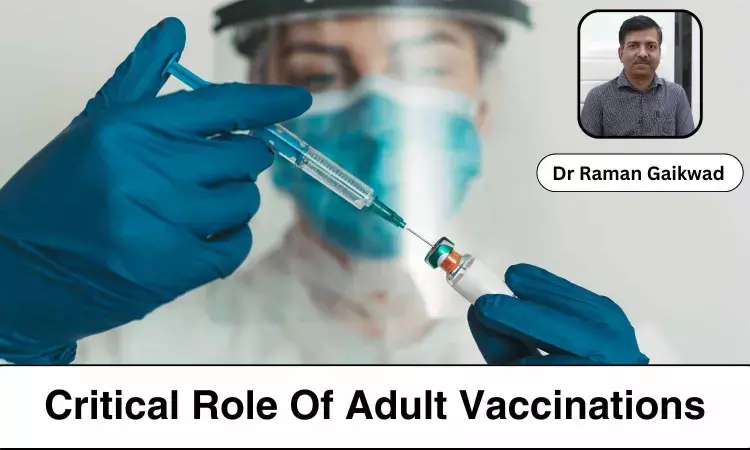- Home
- Medical news & Guidelines
- Anesthesiology
- Cardiology and CTVS
- Critical Care
- Dentistry
- Dermatology
- Diabetes and Endocrinology
- ENT
- Gastroenterology
- Medicine
- Nephrology
- Neurology
- Obstretics-Gynaecology
- Oncology
- Ophthalmology
- Orthopaedics
- Pediatrics-Neonatology
- Psychiatry
- Pulmonology
- Radiology
- Surgery
- Urology
- Laboratory Medicine
- Diet
- Nursing
- Paramedical
- Physiotherapy
- Health news
- Fact Check
- Bone Health Fact Check
- Brain Health Fact Check
- Cancer Related Fact Check
- Child Care Fact Check
- Dental and oral health fact check
- Diabetes and metabolic health fact check
- Diet and Nutrition Fact Check
- Eye and ENT Care Fact Check
- Fitness fact check
- Gut health fact check
- Heart health fact check
- Kidney health fact check
- Medical education fact check
- Men's health fact check
- Respiratory fact check
- Skin and hair care fact check
- Vaccine and Immunization fact check
- Women's health fact check
- AYUSH
- State News
- Andaman and Nicobar Islands
- Andhra Pradesh
- Arunachal Pradesh
- Assam
- Bihar
- Chandigarh
- Chattisgarh
- Dadra and Nagar Haveli
- Daman and Diu
- Delhi
- Goa
- Gujarat
- Haryana
- Himachal Pradesh
- Jammu & Kashmir
- Jharkhand
- Karnataka
- Kerala
- Ladakh
- Lakshadweep
- Madhya Pradesh
- Maharashtra
- Manipur
- Meghalaya
- Mizoram
- Nagaland
- Odisha
- Puducherry
- Punjab
- Rajasthan
- Sikkim
- Tamil Nadu
- Telangana
- Tripura
- Uttar Pradesh
- Uttrakhand
- West Bengal
- Medical Education
- Industry
Understanding The Critical Role Of Adult Vaccinations - Dr Raman Gaikwad

In the realm of public health, vaccinations stand as one of the most effective tools for preventing infectious diseases. While the focus often gravitates towards childhood vaccinations, which protect against common ailments such as diphtheria, tetanus, pertussis, and measles, the importance of adult vaccinations cannot be overstated.
Here, we aim to shed light on the pivotal role vaccinations play throughout adulthood, addressing common misconceptions and highlighting the recommended vaccines for adults.
Understanding Adult Vaccinations
Childhood vaccinations have been highly successful in providing immunity against many illnesses. However, as individuals age, their immunity can wane, and they become susceptible to new diseases.
Furthermore, adults may develop conditions such as diabetes, respiratory, and cardiac diseases, which can increase their vulnerability to infections. This changing health landscape underscores the necessity for adult vaccinations.
Despite the proven benefits of vaccines, adult vaccination rates remain low. Several factors contribute to this trend. Firstly, there is a lack of awareness and prioritization of adult vaccinations. Unlike the routine care seen in childhood, adults may not have regular health check-ups where vaccinations are promoted.
Secondly, misconceptions about vaccine side effects and their benefits persist, leading to vaccine hesitancy. Many adults overestimate the risks of side effects and underestimate the protective benefits vaccines offer.
The Impact of Emerging Infections
The emergence of new pathogens poses a significant threat to public health. Adults, who may have immunity against common infections, find themselves vulnerable to new diseases such as H1N1 influenza and COVID-19.
These pathogens have demonstrated the capacity to cause widespread illness and even pandemics. Adult vaccination becomes a crucial defence mechanism, reducing the incidence of severe illnesses and mitigating the impact of these emerging threats.
Recommended Vaccines for Adults
Certain vaccines are particularly important for adults, including:
1. Influenza Vaccine: Recommended annually for all adults, it is especially crucial for those over 65. The flu vaccine can halve the risk of illness, reducing the burden of hospital admissions related to influenza and its complications.
2. Pneumococcal Vaccine: Protects against pneumococcal pneumonia and other infections, recommended up to the age of 55 and for those with certain medical conditions.
3. Tetanus, Diphtheria, Pertussis (Tdap) Booster: At least one dose is recommended in adulthood to maintain immunity against these diseases.
Additionally, specific vaccines may be recommended based on an individual's health status, occupational hazards, and travel plans. For example, rabies vaccines for those in contact with animals and yellow fever vaccines for travellers to certain countries.
Evolution of Vaccine Technology
The advancement of vaccine technology has significantly improved the safety and efficacy of vaccines. From crude preparations of bacterial cultures to the sophisticated development of mRNA vaccines, each generation of technology has reduced adverse effects and increased vaccine effectiveness. This progress has enabled the rapid development of vaccines against new pathogens, offering hope for the future in combating emerging diseases.
Challenges and Future Directions
Despite the advancements, challenges remain, particularly in addressing diseases prevalent in developing countries, such as chikungunya, dengue fever, and malaria. These conditions often lack the investment needed for vaccine development, highlighting a disparity in global health priorities.
Adult vaccinations play a critical role in maintaining public health, offering protection against a range of diseases, including those that are emerging. It is essential to dispel misconceptions about vaccine safety and emphasize the importance of adult vaccinations.
As vaccine technology continues to advance, the hope for a healthier future becomes more tangible. Nonetheless, a concerted effort is required to ensure equitable access to vaccinations for all populations, irrespective of geographical location.
Dr Raman Gaikwad MBBS, MD (Internal Medicine), FNB (Infectious Diseases) is an Infectious Diseases Physician at Sahyadri Super Speciality Hospital, Deccan Gymkhana, Pune having over 15 years of experience in the field of Medicine. Dr Gaikwad specialises in the management of diseases such as HIV/AIDS, tuberculosis, infections in critically ill patients, severe community acquired infections (eg influenza, dengue, malaria), and infections in the immunosuppressed individuals (cancer, transplant recipients).


